Cockatiels are popular pet birds known for their intelligence, personality, and vocal abilities. They are also relatively easy to care for as they have a balanced diet, clean water, and a comfortable environment. However, sometimes cockatiels may stop eating for various reasons, which can indicate a severe problem.
In this article, we will explore the possible causes of why your new cockatiel is not eating, how to diagnose the problem, and what to do about it.
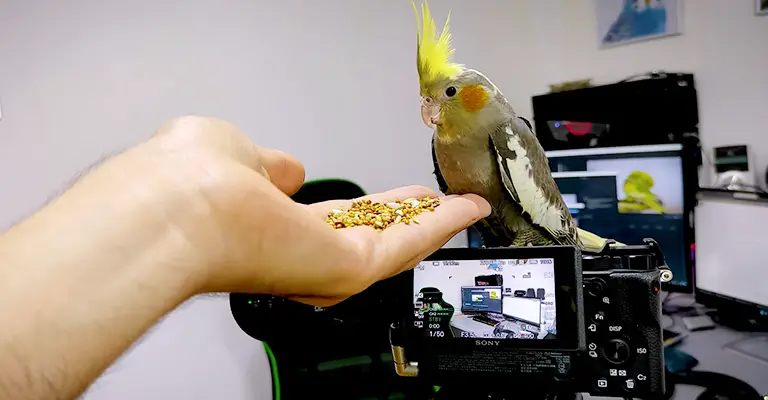
Causes of Cockatiel Not Eating
Many factors can affect your cockatiel’s appetite and eating habits. Some of the most common ones are:
Health Issues
Your cockatiel may have a disease or infection affecting its digestive, respiratory, or other organs. Some examples are pneumonia, bronchitis, sinus infections, tumors, parasites, or bacterial infections²³.
These conditions can cause pain, discomfort, nausea, vomiting, diarrhea, or difficulty breathing, making your cockatiel lose interest in food. Some health issues may also affect your cockatiel’s sense of smell or taste, which can reduce its appetite.
Old Age
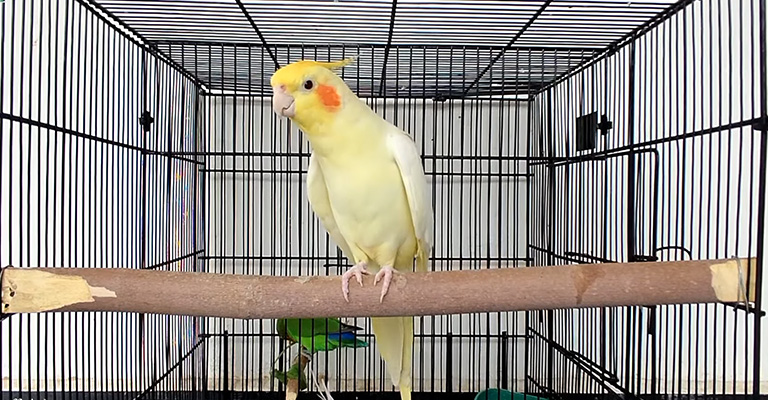
As your cockatiel ages, its metabolism may slow, and energy needs decrease. This can make your cockatiel eat less than before. However, your cockatiel should continue eating altogether. Older cockatiels still need a nutritious diet to maintain their health and prevent malnutrition.
Stress
Your cockatiel may experience stress for various reasons, such as changes in its environment, routine, cage mates, or owners. Stress can affect your cockatiel’s mood and behavior, making it more anxious, fearful, or aggressive.
Stress can also suppress your cockatiel’s immune system and make it more ill-prone. When your cockatiel is stressed, it may lose its appetite and refuse to eat.
Dehydration
Your cockatiel needs fresh and clean water daily to stay hydrated and healthy. If your cockatiel needs access to or drinks enough water, it may become dehydrated.
Dehydration can cause symptoms such as dry mouth, sunken eyes, lethargy, weakness, or kidney failure. Dehydration can also affect your cockatiel’s appetite, making it less willing to eat.
Uncomfortable Environment
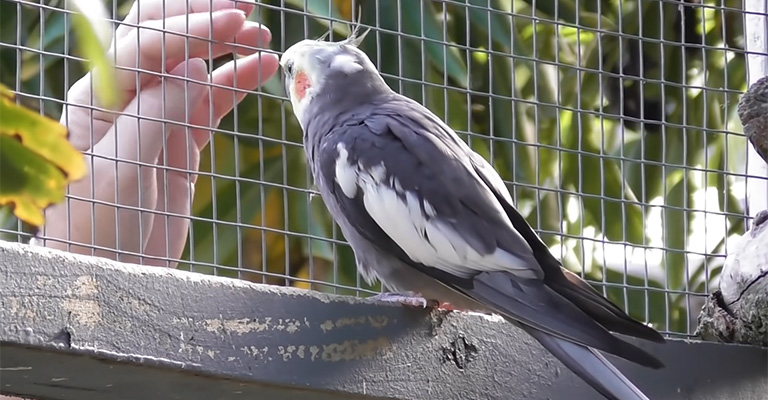
Your cockatiel’s environment is vital to its well-being and happiness. Suppose your cockatiel’s cage is too small, dirty, noisy, cold, hot, or lacks toys or perches.
In that case, it may feel unhappy and uncomfortable. This can affect your cockatiel’s mood and behavior and make it less interested in food.
Dietary Changes
Your cockatiel may be used to a particular type of food it likes and prefers. If you suddenly change your diet or introduce new foods that it is not familiar with, you may reject them and refuse to eat them. Your cockatiel may also have food allergies or intolerances that make it avoid certain foods.
Diagnosis of Cockatiel Not Eating
Diagnosing the cause of a cockatiel’s decreased appetite requires carefully evaluating various factors. While it is essential to consult with an avian veterinarian for an accurate diagnosis, the following steps can help in the diagnostic process:
Observation and Behavioral Changes
Start by closely observing your cockatiel’s behavior and eating habits. Note any changes in appetite, weight loss, energy levels, or abnormal behaviors. Please record these observations, as they will be valuable information for your veterinarian.
Physical Examination
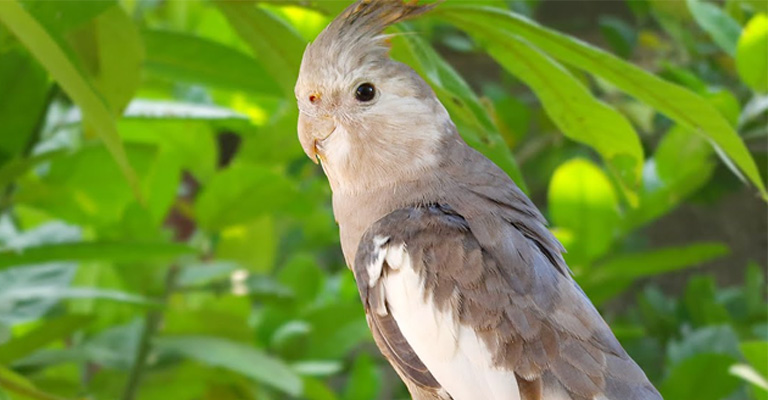
Schedule an appointment with an avian veterinarian experienced in treating birds. During the physical examination, the veterinarian will assess your cockatiel’s overall health, including weight, feather condition, beak and nail health, and respiratory function. They will also look for any visible signs of illness or discomfort.
Medical History
Provide your avian veterinarian with a detailed medical history of your cockatiel, including any previous illnesses, vaccinations, or medications. This information can offer valuable insights into the bird’s overall health and potential underlying conditions.
Behavioural and Environmental Assessment
Apart from medical tests, your veterinarian may inquire about the bird’s environment, including cage setup, temperature, lighting, and exposure to toxins or potential stressors. Environmental factors can contribute to a cockatiel’s decreased appetite, so it is essential to address any issues found.
Consultation and Collaboration
Your avian veterinarian may consult with other specialists or seek second opinions from colleagues to ensure the most accurate diagnosis and appropriate treatment plan for your cockatiel.
Diagnostic Tests
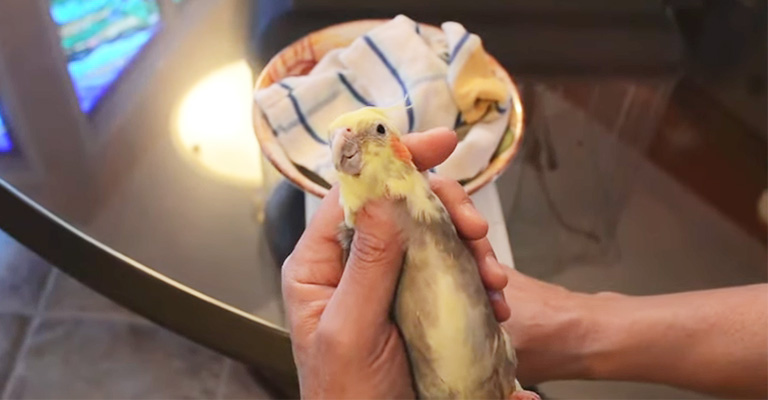
Based on the physical examination and medical history, your veterinarian may recommend additional diagnostic tests to determine the cause of the decreased appetite. These tests may include:
Blood Tests
Bloodwork can reveal information about organ function, detect infections, assess nutritional deficiencies, and identify underlying systemic conditions.
Fecal Examination
A faecal analysis can help identify the presence of parasites, such as worms or protozoa, which can affect the bird’s digestive system and appetite.
Bacterial and Fungal Cultures
These tests may be conducted to identify specific bacterial or fungal infections that can impact the bird’s digestive system and overall health.
Imaging Studies
X-rays or other imaging techniques may be recommended to evaluate the bird’s respiratory system and internal organs or identify abnormalities.
Endoscopy or Biopsy
In some cases, an endoscopy or biopsy may be required to directly examine the internal organs and obtain tissue samples for further analysis.
Treatment of cockatiel not eating
The treatment of your cockatiel’s not eating will depend on the underlying cause and the severity of the condition. Some of the possible treatments are:
Medication
Your vet may prescribe antibiotics, anti-inflammatories, antifungals, antiparasitics, or other drugs to treat any infection, inflammation, fungus, parasites, or other diseases that are affecting your cockatiel’s appetite and health.
Fluid therapy
Your vet may administer fluids intravenously or subcutaneously to rehydrate your cockatiel and prevent dehydration.
Nutritional support
Your vet may recommend a special diet or supplement for your cockatiel to provide the nutrients and calories it needs to recover. Your vet may also advise you to syringe-feed your cockatiel with a liquid formula or mash if it is not eating independently.
Surgery
Your vet may perform surgery to remove any tumors, foreign bodies, or obstructions causing your cockatiel not to eat.
Environmental enrichment
Your vet may suggest ways to improve your cockatiel’s environment and make it more comfortable and stimulating. This may include providing a larger cage, cleaning the cage regularly, changing the bedding, adding toys and perches, adjusting the temperature and lighting, and reducing noise and stress.
Behavioral modification
Your vet may help you identify and address any behavioral issues causing your cockatiel’s not to eat. This may include providing positive reinforcement, socialization, training, or counseling for your cockatiel.
FAQ
Some signs that your cockatiel is sick are fluffed-up feathers, droopy wings, closed eyes, sneezing, coughing, wheezing, discharge from the nose or eyes, swollen or red eyes, loss of feathers, changes in weight, changes in feces, changes in behavior, or lack of appetite.
A balanced diet for your cockatiel should consist of pellets (about 60-70% of the diet), fresh fruits and vegetables (about 20-30% of the diet), and seeds and nuts (about 10% of the diet). You should also provide fresh and clean water every day.
You should avoid feeding your cockatiel chocolate, avocado, onion, garlic, alcohol, caffeine, salt, sugar, or any other human foods that are toxic or unhealthy for birds.
Some ways to avoid your cockatiel from getting sick are: taking it to the vet for regular check-ups and vaccinations, keeping its cage clean and sanitized, providing a varied and nutritious diet, ensuring adequate hydration, avoiding exposure to other sick birds or animals, minimizing stress and boredom, and monitoring its health and behavior daily.
Some ways to connect with your new cockatiel are: spending time with it every day, talking to it softly and gently, offering it treats and toys, playing with it and teaching it tricks, letting it out of the cage for supervised exercise, and exploration, respecting its personality and preferences, and being patient and consistent.
Cockatiels can live up to 20 years or more in captivity if they are well cared for. However, their lifespan may vary depending on their genetics, health, diet, environment, and quality of life.
Conclusion
Cockatiels are wonderful pets that can bring joy and companionship to their owners. However, they may sometimes stop eating for various reasons, which can indicate a severe problem.
If your new cockatiel is not eating, you should take it to the vet as soon as possible to diagnose the cause and treat it accordingly.
You should also provide your cockatiel with a balanced diet, clean water, and a comfortable environment to keep it healthy and happy.